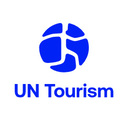Private sector commits to the UNWTO Global Code of Ethics for Tourism at FITUR

Seven companies and one association formalized their commitment to the UNWTO Global Code of Ethics for Tourism during an event held in the context of FITUR, the International Tourism Fair of Madrid.
Cielos Abiertos (Colombia), Destinos R.I. (Costa Rica), Tradewings Tours & Travel Corp. (Philippines), Turisferr Association (Spain), Civitatis (Spain), Intercruises (Spain), Vincci Hoteles (Spain) and Concorde De Luxe Resort (Turkey) are the most recent signatories of the Code.
"We must build a more sustainable tourism sector between all actors, in order to ensure that tourism has lasting positive effects. The entities that commit to the UNWTO Global Code of Ethics for Tourism are leading by example in promoting ethical, responsible and sustainable tourism development", said UNWTO Secretary-General Zurab Pololikashvili.
The Code of Ethics was endorsed by the United Nations General Assembly in 2001 and represents a roadmap to guide actions towards responsible tourism regarding the environment, local culture and communities. To date, 547 companies and associations from 73 countries have committed to the Code.
The Code includes principles such as respect for human rights and cultural heritage, the protection of the environment and the most vulnerable communities, as well as concepts such as inclusiveness, gender equality and accessibility. It covers the responsibilities of all stakeholders, recommending an ethical and sustainable modus operandi including the right to tourism, the freedom of movement for tourists and the rights of employees and professionals. At the 22nd UNWTO General Assembly, UNWTO Member States approved the transformation of the Code of Ethics for Tourism into the UNWTO Framework Convention on Tourism Ethics, the Organization's first ever international convention.
About UN Tourism
The World Tourism Organization (UN Tourism) is the United Nations agency responsible for the promotion of responsible, sustainable and universally accessible tourism.
As the leading international organization in the field of tourism, UN Tourism promotes tourism as a driver of economic growth, inclusive development and environmental sustainability and offers leadership and support to the sector in advancing knowledge and tourism policies worldwide.
Our Priorities
Mainstreaming tourism in the global agenda: Advocating the value of tourism as a driver of socio-economic growth and development, its inclusion as a priority in national and international policies and the need to create a level playing field for the sector to develop and prosper.
Promoting sustainable tourism development: Supporting sustainable tourism policies and practices: policies which make optimal use of environmental resources, respect the socio-cultural authenticity of host communities and provide socio-economic benefits for all.
Fostering knowledge, education and capacity building: Supporting countries to assess and address their needs in education and training, as well as providing networks for knowledge creation and exchange.
Improving tourism competitiveness: Improving UN Tourism Members' competitiveness through knowledge creation and exchange, human resources development and the promotion of excellence in areas such as policy planning, statistics and market trends, sustainable tourism development, marketing and promotion, product development and risk and crisis management.
Advancing tourism's contribution to poverty reduction and development: Maximizing the contribution of tourism to poverty reduction and achieving the SDGs by making tourism work as a tool for development and promoting the inclusion of tourism in the development agenda.
Building partnerships: Engaging with the private sector, regional and local tourism organizations, academia and research institutions, civil society and the UN system to build a more sustainable, responsible and competitive tourism sector.
Our Structure
Members: An intergovernmental organization, UN Tourism has 160 Member States, 6 Associate Members, 2 Observers and over 500 Affiliate Members.
Organs: The General Assembly is the supreme organ of the Organization. The Executive Council take all measures, in consultation with the Secretary-General, for the implementation of the decisions and recommendations of the General Assembly and reports to the Assembly.
Secretariat: UN Tourism headquarters are based in Madrid, Spain. The Secretariat is led by the Secretary-General and organized into departments covering issues such as sustainability, education, tourism trends and marketing, sustainable development, statistics and the Tourism Satellite Account (TSA), destination management, ethics and risk and crisis management. The Technical Cooperation and Silk Road Department carries out development projects in over 100 countries worldwide, while the Regional Departments for Africa, the Americas, Asia and the Pacific, Europe and the Middle East serve as the link between UN Tourism and its 160 Member States. The Affiliate Members Department represents UN Tourism's 500 plus Affiliate members.
Marcelo Risi
UNWTO Communications & Publications Programme
(+34) 91 567 81 60
UN Tourism
